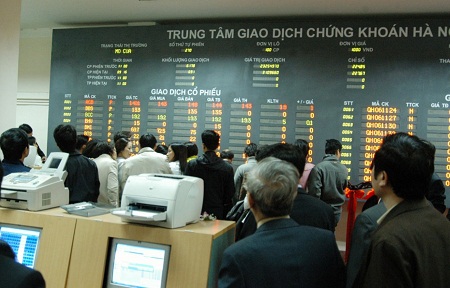Vietnamese stock market attracts investment from foreign investors
VGP – Viet Nam is enjoying stable macroeconomy and growing foreign investment opportunities and this positive milieu is embodied by the nation’s thriving stock market.
 |
|
Vietnamese stock market attracts investment from foreign investors |
Over the past quarter century, Viet Nam has experienced a remarkable economic transformation. By shifting away from the agrarian economy of its past and moving towards an industry-and-services-driven model, the nation has rapidly emerged as one of South-East Asia’s fastest-growing economies. Indeed, having recorded an average annual per capita GDP growth rate of 5.3% since 1986, VietNam has been developing faster than any other Asian economy – except for its neighbour to the north, China.
This growth trajectory can be traced back to the launch of the 1986 Doi Moi economic renewal campaign, which saved Viet Nam from the brink of economic crisis by opening the nation up to lucrative foreign investment. These wide-reaching reforms had an almost instant impact, transforming a stagnant agricultural economy into the vibrant, market-driven system that Viet Nam embodies today.
Since this pivotal moment, the country has also benefitted from a programme of intense internal restructuring, which has seen successive governments push through sweeping regulatory changes to increase inflows of foreign direct investment (FDI).
As one of Asia’s most promising bourses, Viet Nam’s stock exchange is considered to be a great prospective market. Indeed, the Vietnamese stock market could achieve its well-deserved market upgrade in just a few years if it maintains its current trajectory. With this exciting possibility now on the horizon, the future for Vietnam’s stock market looks brighter than ever.
Chairman of the State Securities Commission (SSC) Tran Van Dung said Viet Nam’s stock market has been evaluated as a bright spot in the region in terms of growth speed and foreign capital absorption for years.
He said the foreign indirect investment (FII) in VietNam reached US$1.28 billion in the first six months of 2019.
Between 2016 and 2018, the FII sector continuously net purchased local stocks worth US$1.98 billion per annum, he said.
He added that Viet Nam’s stock market has continued growing in scale and liquidity in recent years with the total market capitalisation touching nearly US$4.3 million as of the end of June 2019, equivalent to about 78% of the gross domestic product (GDP) in 2018, up 11.2% against the early 2019.
After 19 years of operation, the stock market has basically completed its structure and diversified products such as stocks, bonds, fund certificates, derivatives and most recently covered warrants - securities that have collateral assets issued by securities companies, Dung said.
According to Dung, these achievements were attributed to the Government’s efforts in improving policies to develop the stock market and attract overseas investment in the field.
The Ministry of Finance and the SSC have been actively implementing policies to upgrade the stock market from marginal level to emerging one according to the MSCI Emerging Markets Index.
Along with improving the macro policies, the Government has been continuously promoting equitisation and divestment of State-owned enterprises in association with the listing and registration of trading on the stock market, Dung said.
By Vien Nhu

